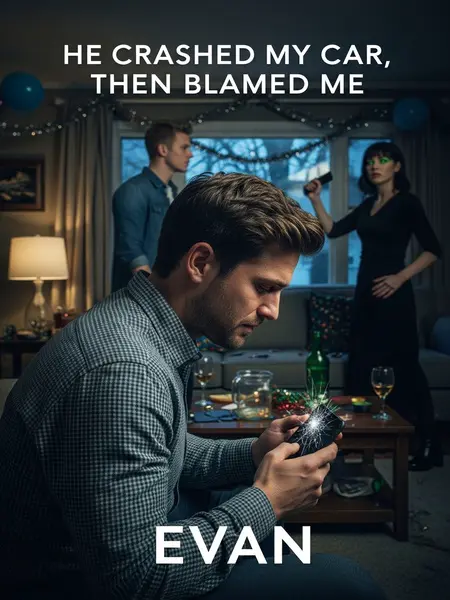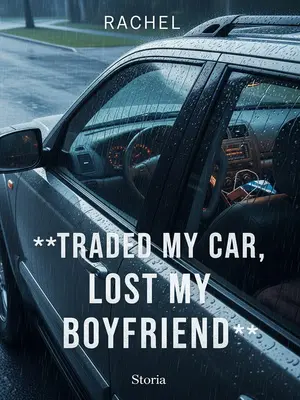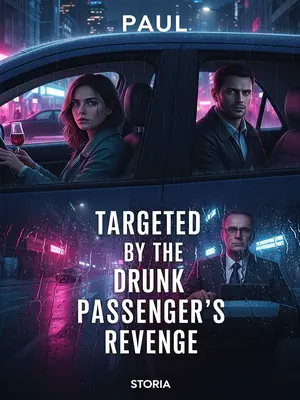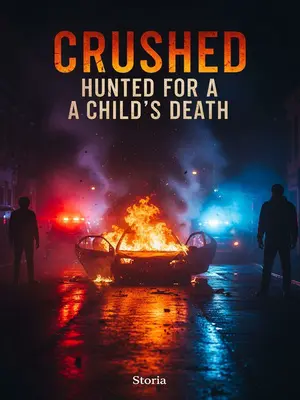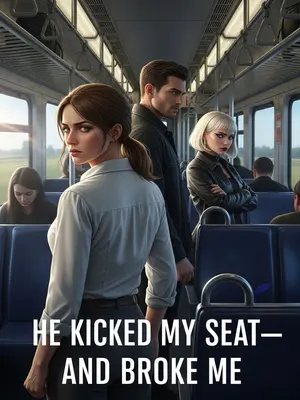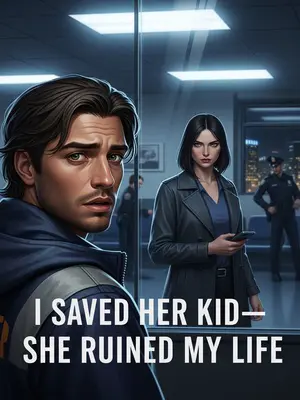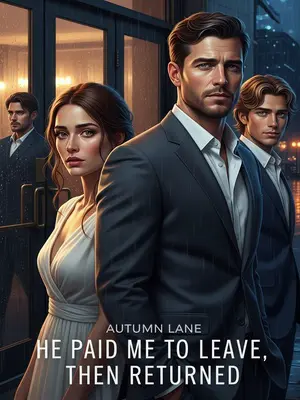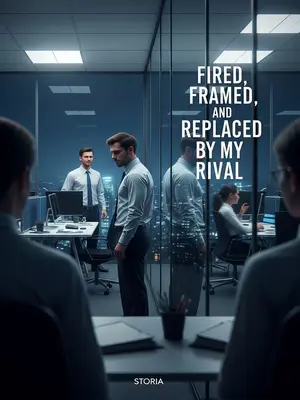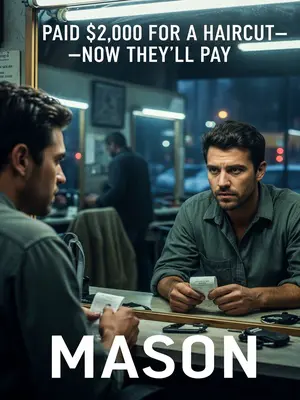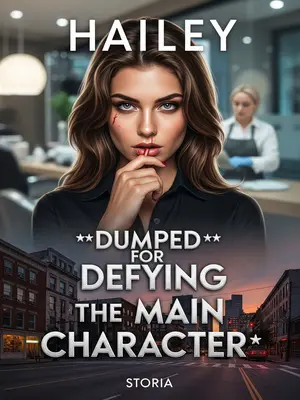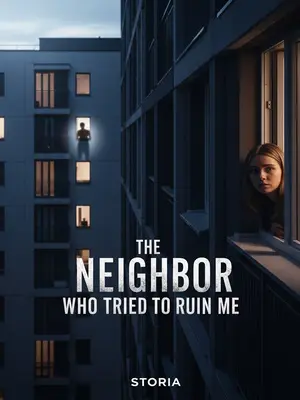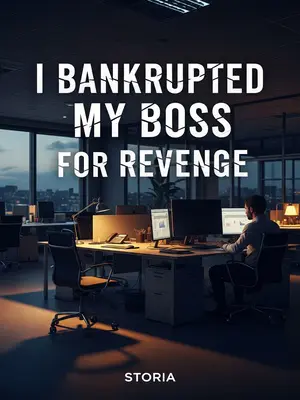Chapter 2: Dirty Threats and Old Wounds
“Matt, don’t forget—you were drinking. Even if I had blocked you, if you get into an accident while drunk, the cops will still say it’s all on you.”
I made sure my voice carried, not just to Matt but to everyone standing there. I wanted the whole family to hear it. There was no way I was going to let him bully me into silence.
Matt, acting like he didn’t know how serious a DUI was, didn’t show a hint of guilt. Instead, he went straight to threats.
His eyes narrowed, and his voice dropped. “Evan, you better watch your mouth! Don’t forget, your parents work at my company. One word from me and they’re out on the street!”
The threat hung in the air, ugly and mean.
He wasn’t wrong—my parents do work for him. But what kind of jobs did he give them? Janitorial. Cleaning toilets.
It always stung, knowing my folks spent their days scrubbing floors and emptying trash for a guy who never respected them. Matt made sure they knew their place—at the bottom of his pecking order.
In the sweltering summer, when it was pushing a hundred, he had my dad out there trimming hedges. My dad came home with heatstroke.
In the dead of winter, he made my mom wash carpets by hand in freezing water. Her hands cracked and bled so bad she needed help eating dinner.
I remembered the night Mom sat at the table, her hands wrapped in dish towels, wincing every time she tried to lift her fork. My dad’s face was red from the sun, sweat still beading on his brow long after sunset. It was humiliating.
And for all that, he paid them just $350 a week—not even as much as the city sanitation workers.
I’d checked the numbers. Even the high school janitor made more than my folks. Matt never missed a chance to remind them who signed their checks.
I remember when my dad tried to get that job. He had to go back and forth half a dozen times, and Matt kept making excuses—said he needed a physical, then claimed my dad didn’t pass.
Each time, my dad came home looking smaller, more tired. Matt strung him along, making him jump through hoops for a job nobody else wanted.
Any little mistake, Matt would chew them out in front of everyone. And my dad and Matt’s dad are brothers. Matt never treated my dad like family.
I’d seen it myself—Matt berating my dad over a missed spot on the windows, his voice carrying through the office. It was humiliating, and it hurt more because we were supposed to be family.
It wasn’t just my parents. Plenty of relatives worked for him, and none of them had it good. Sometimes, he even held back their paychecks. When folks asked about their wages, Matt would say, “All the funds are tied up right now. Wait a couple days!”
I remembered Aunt Lisa, wringing her hands, asking for her check so she could buy groceries. Matt just shrugged, then bragged about the new grill he’d bought for his deck.
Yet he’d still take his wife and kids out to steakhouses.
Instagram was full of their smiling faces—plates piled high with ribeyes, glasses clinking, the caption always something like #familyfirst. The irony was enough to make me sick.
He never treated us like family. With relatives like that, who needs enemies?
The phrase rolled around in my head, bitter and true. Some families lift you up. Matt’s just made you feel small.
“You know, I almost forgot,” I said. “You only ever gave my parents the dirtiest, hardest jobs—and paid them peanuts. I’ve already talked it over with my dad. After New Year’s, they’re quitting.”
I made sure to say it loud enough for everyone to hear.
Matt’s threat didn’t faze me. I shot right back, and it rattled him.
His bravado slipped for just a second.
“Evan, come on, we’re family. What’s done is done. How about this: you call the insurance company, let them handle the claim. And your parents can keep working for me. I’ll give them better jobs, okay?”
His tone softened, but only a little.
Matt softened a bit, but he still acted like my car had blocked him in. He couldn’t quite bring himself to admit fault. So he hedged, acting like he was doing me a favor.
I couldn’t tell if he was clueless or just stubborn—still trying to use my parents’ jobs as leverage. Did he really think they couldn’t find work anywhere else?
I glanced at my mom, standing off to the side, her lips pressed tight. She deserved better than this, and so did my dad.
“Evan, your cousin’s just looking out for you. We’re all family—why make a scene? Just let it go and everything will be fine,” Amanda chimed in, trying to play the good cop.
Her voice was syrupy sweet, but her eyes were sharp.
The two of them, tag-teaming like this. Not this time.
Truth was, they just didn’t want to pay for their own car repairs. Matt drove drunk and crashed into my car; no insurer would make that easy. And fixing his BMW X5 would cost a fortune. They were desperate, and it showed.
If he’d just been decent about it, maybe I would’ve let it go—family and all. But instead, he blamed me and threatened my parents’ jobs. How was I supposed to just swallow that?
It was the principle of the thing. I could forgive a lot, but not this—not the lies, not the threats, not the total lack of decency. No way was I setting that example.
“Have you two even thought this through? My car never left its spot—it wasn’t even running. You crashed into me, and now you want me to pay for your repairs? Does that sound reasonable to you?”
I let my words hang in the air, daring them to answer.
As soon as I finished, Amanda’s shrill voice rang out again, still sticking to her story. She tossed her hair, her earrings flashing in the light.
“Evan, you can’t say that! If you hadn’t blocked our car, how would our front end have hit your rear?”
She sounded almost triumphant, as if she’d just solved some impossible puzzle. The mental gymnastics were impressive, in a sad sort of way.
If they were going to be shameless, I wasn’t going to bother with family manners, either. I raised my voice, pointing at the fence in front of my car:
I jabbed my finger at the dented fence, my voice rising. “If my car wasn’t here, at the speed you were going, you’d have crashed right through the fence and gone flying. You’d be lucky to survive!”
I could see the color drain from Amanda’s face for just a second, but she recovered quickly, doubling down.
By then, I’d stopped calling him ‘cousin’—just Matt.
He’d burned that bridge himself.
But Matt and Amanda still stuck to their story:
Matt crossed his arms, Amanda glared. “Whatever. Say whatever you want. You just don’t want to pay up! And even if our car did go flying, that’s none of your business! But the fact is, your car blocked our way and caused this accident. So you have to pay—not just for repairs, but for my emotional distress, too!”
Amanda was all righteous indignation, convinced my car was to blame and totally ignoring the real cause of the accident.
She even dabbed at her eyes, as if the thought of her precious BMW being hurt was more than she could bear. The performance was Oscar-worthy, if you liked melodrama.
It was pathetic—she was clearly in the wrong, yet acted like the victim. People like that are either clueless or hopeless. It was exhausting, and I was done playing along.
